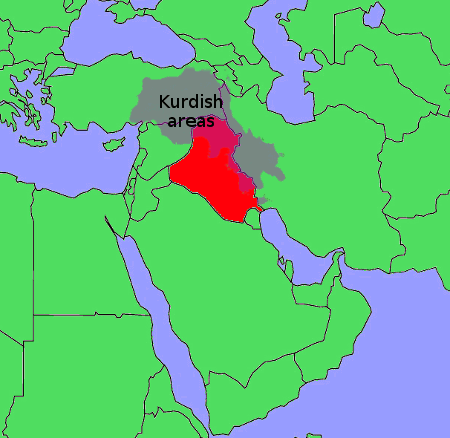
Circle the area on this map

A. Iraq borders Turkey to the north, Iran to the east, Kuwait to the southeast, Saudi Arabia to the south, Jordan to the southwest, and Syria to the west. The Turkish jets bombed the camps of the PKK, a Kurdish militant group that has fought three decades for independence for Turkey's 15 million Kurds.
C. The Ottoman Empire was dissolved at the end of World War I, nearly 100 years ago. In carving up the Mideast, Europe's WWI victors ignored the Kurds' desire for their own country. With nearly 25 million people living in five countries, the Kurds have been called the largest stateless minority group in the world.
B. The North Atlantic Treaty Organization is made up of 28 member states which agree to mutual defense in response to an attack by any external party. While U.S. officials defended Turkey's right to attack the PKK, the United States also has supplied weapons to the peshmerga, an Iraqi Kurdish militia repelling the Islamic State onslaught.
C. Sunni Muslims make up the vast majority of Kurds, but there is a sizable Shiite population, particularly in Iran.